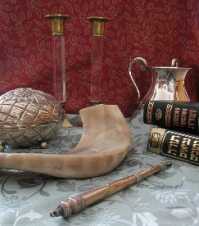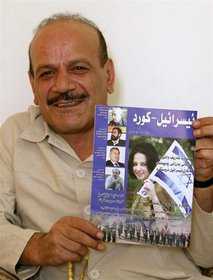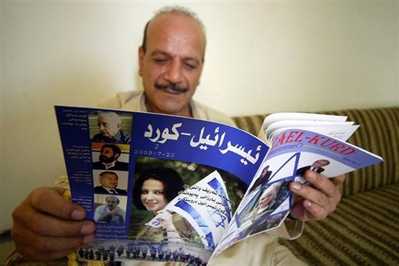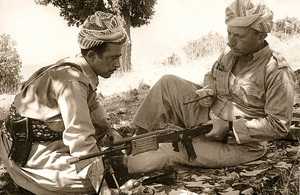By Wayne Madsen
Online Journal Contributing Writer
(WMR) — WMR’s Middle East sources are pointing to a looming battle that will be waged for control of the life-sustaining waters of the Nile River when southern Sudan, or whatever it’s name will be, achieves independence from Sudan following the ongoing independence referendum.
Independence for southern Sudan has long been a goal of former Secretary of State Madeleine Albright and her god-daughter, current U.S. ambassador to the UN Susan Rice. The splitting of Sudan has long been in the interests of Israel, which has yearned for a client state in southern Sudan that could put the squeeze on the supply of the Nile’s headwaters to Egypt and northern Sudan. For Rice, a vitriolic hatred for Khartoum and its majority Arab population, has helped the cause of the southern Sudanese. Rice’s views on southern Sudan and Khartoum were partly influenced by two members of the Israeli Lobby who had direct control over U.S. policy toward Sudan as counter-terrorism officials in the Bill Clinton National Security Council: Steven Simon and Daniel Benjamin.
The late southern Sudanese leader, John Garang, was one of Albright’s celebrated ex-Marxist “beacons of hope” for Africa, along with other U.S. client dictators in the region as Paul Kagame of Rwanda, Yoweri Museveni of Uganda, and Meles Zenawi of Ethiopia. Congo’s Laurent-Desire Kabila and Garang were among Washington’s “red princes” until they got cross-wise with the CIA and U.S. corporate plans for their respective nations and were removed in assassinations plotted by Langley.
Southern Sudan has not even settled on a name for the new nation. However, any of the proposed names raises the specter of ambitions by the Israelis and other external actors vying for influence in central Africa. One name proposed is the Nile Republic but that would immediately send an alarm to Cairo and Khartoum concerning the long-term control of the Nile’s waters by the new pro-U.S. and pro-Israeli government with its capital in Juba in southern Sudan. Another proposal would call the country “Nilotia,” again, problematic, because of the reference to the Nile River.
Another proposed name, Cush, is taken from the Jewish Bible and refers to an ancient kingdom extending from the Horn of Africa to southern Egypt. There is some informed speculation in the region that the Mossad was behind the recent Christmas car bombing outside an Egyptian Coptic church in Alexandria, Egypt in order to stir up tensions between Egypt’s ten percent Coptic minority and its majority Muslim population. Some Middle East commentators pointed out that remotely-controlled car bombs are virtually unknown in Egypt but have been carried out by Mossad in Lebanon, where they are then blamed on Hezbollah.
Mossad is reportedly recruiting agents from the hundreds of southern Sudanese in Israel who have migrated to Israel for employment opportunities. Many of these southern Sudanese refugees, mostly found in Tel Aviv, are expected to return to their new nation.
Southern Egypt, the land that supposedly once included Cush [Cush was the mythical grandson of Noah], is a center for Egypt’s Copts and wider irredentist claims in the region by an independent Cush [or “Kush”] in southern Sudan could further inflame tensions along the entire stretch of the Nile River.
Another proposed names for the new nation in southern Sudan, New Sudan, may stir up tensions on the disputed oil-rich territory on the border of old Sudan and “New Sudan,” the Abyei region. Continued use of “South Sudan” or “Southern Sudan” would give the impression of a divided country like South and North Korea or South and North Yemen. Continued use of Sudan in the name may also create friction as seen in the Balkans between Greece and Macedonia. Greece has insisted that Macedonia be referred to by the United Nations as “FYROM: former Yugoslav Republic of Macedonia” because of what it believes are irredentist claims by Macedonia on northern Greece.
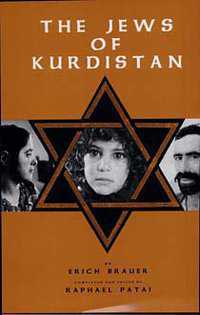 However, it is the ambitions of Israel that may pose the greater problem for the land of the Nile headwaters. Israel’ expansionist government is fond of using the collection of ancient folk lore and myths known as the “Old Testament” to drive claims to land in the West Bank [which are referred to by the arcane biblical names of Judea and Samaria] but also, increasingly to lands in northern Iraq. On January 28, 2008, WMR reported: “Israeli expansionists, their intentions to take full control of the West Bank and the Gaza Strip and permanently keep the Golan Heights of Syria and expand into southern Lebanon already well known, also have their eyes on parts of Iraq considered part of a biblical ‘Greater Israel.’ Israel reportedly has plans to re-locate thousands of Kurdish Jews from Israel, including expatriates from Kurdish Iran, to the Iraqi cities of Mosul and Nineveh under the guise of religious pilgrimages to ancient Jewish religious shrines. According to Kurdish sources, the Israelis are secretly working with the Kurdistan Regional Government (KRG) to carry out the integration of Kurdish and other Jews into areas of Iraq under control of the KRG. Kurdish, Iraqi Sunni Muslim, and Turkmen have noted that Kurdish Israelis began to buy land in Iraqi Kurdistan after the U.S. invasion in 2003 that is considered historical Jewish ‘property.’ The Israelis are particularly interested in the shrine of the Jewish prophet Nahum in al Qush, the prophet Jonah in Mosul, and the tomb of the prophet Daniel in Kirkuk. Israelis are also trying to claim Jewish ‘properties’ outside of the Kurdish region, including the shrine of Ezekiel in the village of al-Kifl in Babel Province near Najaf and the tomb of Ezra in al-Uzayr in Misan Province, near Basra, both in southern Iraq’s Shi’a-dominated territory. Israeli expansionists consider these shrines and tombs as much a part of “Greater Israel” as Jerusalem and the West Bank, which they call ‘Judea and Samaria.’”
However, it is the ambitions of Israel that may pose the greater problem for the land of the Nile headwaters. Israel’ expansionist government is fond of using the collection of ancient folk lore and myths known as the “Old Testament” to drive claims to land in the West Bank [which are referred to by the arcane biblical names of Judea and Samaria] but also, increasingly to lands in northern Iraq. On January 28, 2008, WMR reported: “Israeli expansionists, their intentions to take full control of the West Bank and the Gaza Strip and permanently keep the Golan Heights of Syria and expand into southern Lebanon already well known, also have their eyes on parts of Iraq considered part of a biblical ‘Greater Israel.’ Israel reportedly has plans to re-locate thousands of Kurdish Jews from Israel, including expatriates from Kurdish Iran, to the Iraqi cities of Mosul and Nineveh under the guise of religious pilgrimages to ancient Jewish religious shrines. According to Kurdish sources, the Israelis are secretly working with the Kurdistan Regional Government (KRG) to carry out the integration of Kurdish and other Jews into areas of Iraq under control of the KRG. Kurdish, Iraqi Sunni Muslim, and Turkmen have noted that Kurdish Israelis began to buy land in Iraqi Kurdistan after the U.S. invasion in 2003 that is considered historical Jewish ‘property.’ The Israelis are particularly interested in the shrine of the Jewish prophet Nahum in al Qush, the prophet Jonah in Mosul, and the tomb of the prophet Daniel in Kirkuk. Israelis are also trying to claim Jewish ‘properties’ outside of the Kurdish region, including the shrine of Ezekiel in the village of al-Kifl in Babel Province near Najaf and the tomb of Ezra in al-Uzayr in Misan Province, near Basra, both in southern Iraq’s Shi’a-dominated territory. Israeli expansionists consider these shrines and tombs as much a part of “Greater Israel” as Jerusalem and the West Bank, which they call ‘Judea and Samaria.’”
Oil is also a major factor in the independence of southern Sudan. The new country is rich in oil and with Africa’s oil and other resources now highly sought after by competing nations like the United States, China, and Japan, the traditional strictures issued by the Organization of African Unity upon its founding in 1963 against changing Africa’s colonial borders through secession have been overtaken by new realities and a new organization, the African Union, which has now permitted two nations to secede from established nations: Eritrea from Ethiopia in 1993 and now southern Sudan or whatever it will call itself, from Sudan in 2011.
Several nations point to Somaliland, the former British Somaliland that declared itself independent from Somalia in 1991, as the next state in line to achieve recognition. Israeli diplomats have reportedly been in Hargeisa, the Somaliland capital, to talk about Israeli recognition of the state. However, it will be the United States and Britain, both of which favor recognition, that will spur Somaliland’s quest for international recognition and UN membership. After Somaliland, two other parts of Somalia, Puntland and Jubaland, will likely follow suit.
Some Africa policy habitués of the Council on Foreign Relations and other fronts for the global banking elites are already floating the idea that the Sudan solution may be applied to Africa’s other north-south and Islamic-Christian flash points like Nigeria and Ivory Coast. They reason that if majority Christian south Sudan can separate from largely Muslim north Sudan, why not majority Muslim north Ivory Coast from largely Christian south Ivory Coast and Muslim north Nigeria from Christian south Nigeria? And the Democratic Republic of the Congo has long been seen as a prime candidate for “Balkanization” by the Corporate Council on Africa and its affiliates at the Kissingerian Center for Strategic and International Studies.
As for southern Sudan or whatever it will be, after the likes of John Kerry and George Clooney depart from the photo ops in Juba, they will be replaced by non-governmental organization and international aid agency faceless international bureaucrats, the foot soldiers of the global “misery industry” who migrate from killing fields to war zones in search of new tax-free income, walled compounds with servants and Land Rovers, and duty free shopping gigs. Southern Sudan’s “independence” will be in name only, with the aid agencies and NGOs calling the shots as they do in Haiti today.
Previously published in the Wayne Madsen Report.
Copyright © 2011 WayneMadenReport.com
Wayne Madsen is a Washington, DC-based investigative journalist and nationally-distributed columnist. He is the editor and publisher of the Wayne Madsen Report
, Jan 18, 2011
